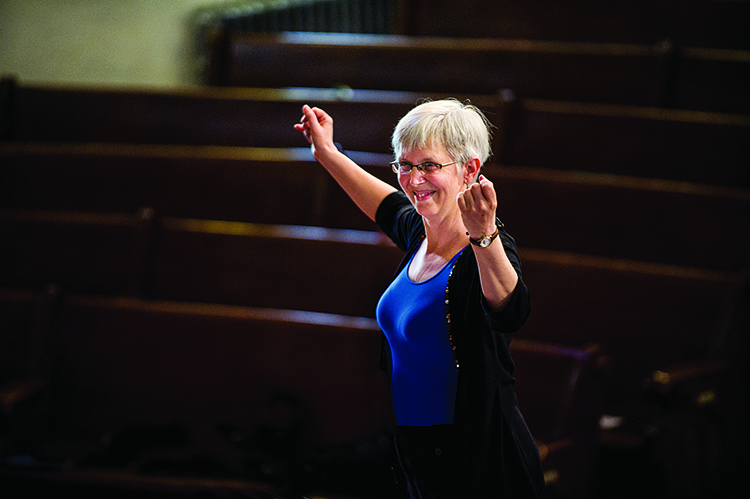I arrived at Colgate in 1973, pretty sure I wouldn’t major in music — even though, so far, my life had been filled with music (I’d been playing, reading, and composing music since age 5). But I wanted to experiment and to have an identity beyond “musician.” Besides, I didn’t think I could make a living as a musician. My father worked hard to make a living as a writer, and Mom gave up her art for advertising; I wanted to be practical about my future.
I didn’t always feel Colgate was the right place for me. (The 3:1 men-to-women ratio didn’t suit me, and fraternity parties didn’t either.) All the same, I made close friends, loved the beauty of the outdoors, and appreciated the small-town feel of Hamilton. Sophomore year I moved to Peace House, where I found an atmosphere of acceptance and activism. I volunteered at the Chenango Nursery School and began a lifelong career in education. Over time, I settled into the fact that music was likely to be my vocation. It seemed to feed me.
Colgate was a wonderful place to study music, and there were many opportunities to do so. Because I played piano, I got to accompany everything. I played one of two concertos my senior year. With the Colgate orchestra, I performed at Town Hall in New York City. And I sang folk music in a trio with friends Rob White ’77 and Sara Wright ’77.
After Colgate, I moved to Vermont with some other Colgate grads and settled in Brattleboro. I like small-town living. So, after spending 10 years in Portsmouth, N.H., and earning a master’s degree in education from Lesley University in Cambridge, Mass., I moved back to Brattleboro.
I shifted and changed through the years, refining my work, with music being a constant thread. First, I was an elementary school music teacher. (Teachers were in short supply, and I was certified because of a well-written letter of recommendation from Sharyn Godwin, my Colgate piano instructor.) After a while, I gained confidence in my stage presence (could it be the English major in me?) and toured New England as a storyteller. I have directed musicals, led church worship, and played in a brass band and contra dance bands.
In 1996, I founded the Brattleboro Women’s Chorus, a welcoming oral tradition chorus. Nowadays, we’re rehearsing over Zoom on Thursdays. It has been my privilege to meet, work with, and learn from other song leaders.
In the fall, three colleagues and I put together “Women Sing 100,” a program celebrating women’s suffrage, honoring the voices and activism of Black and white women. We had originally hoped to sing together in person, but we had to move to a Zoom event. Although it wasn’t how we first envisioned the event, this platform allowed us to share more about the important history.
So, thank you, Colgate, for leading me ’round to music again as a viable and valuable pursuit.

